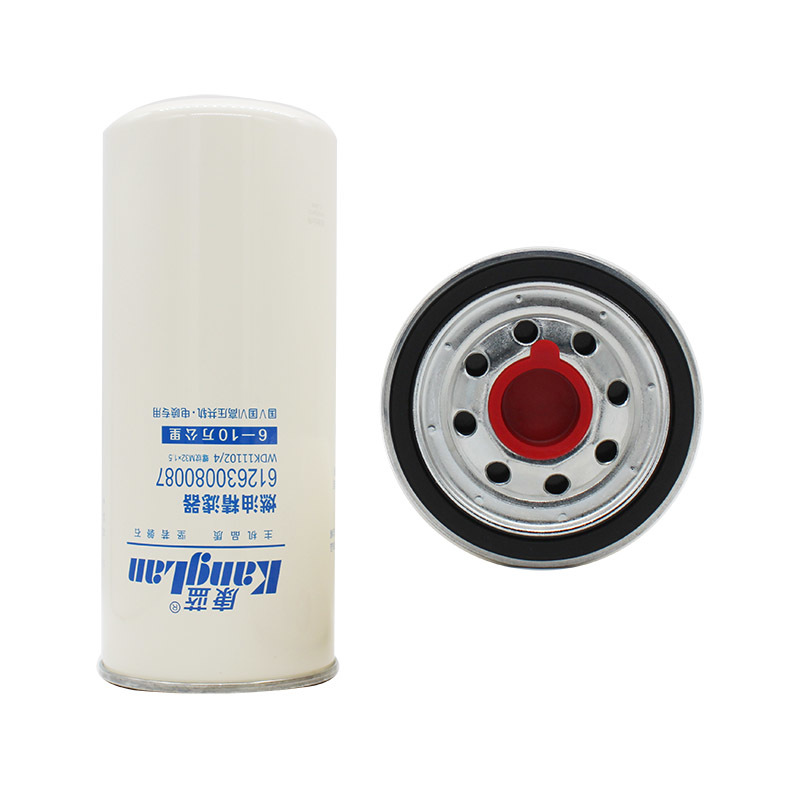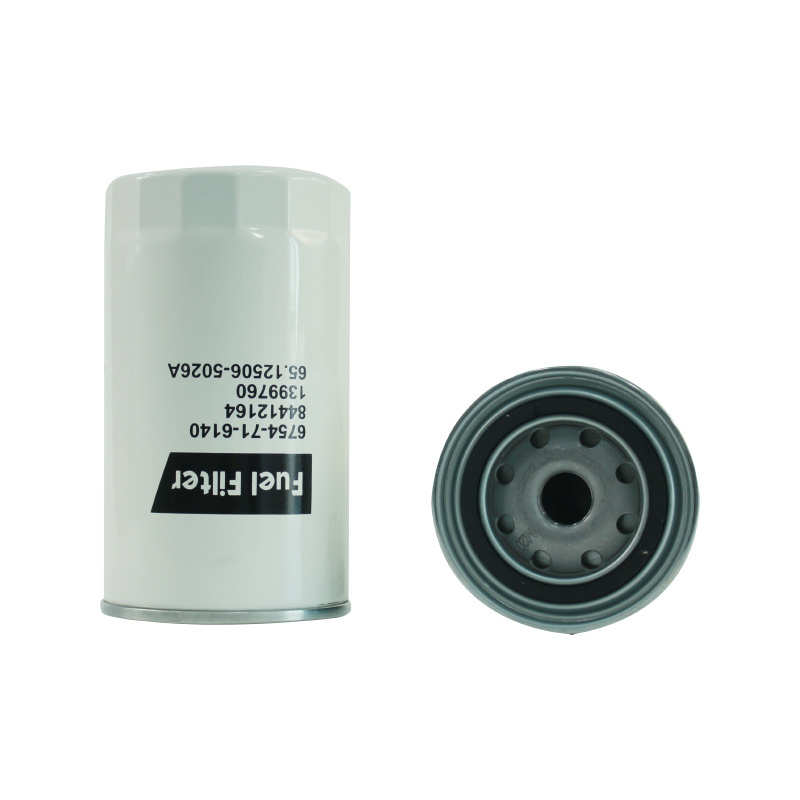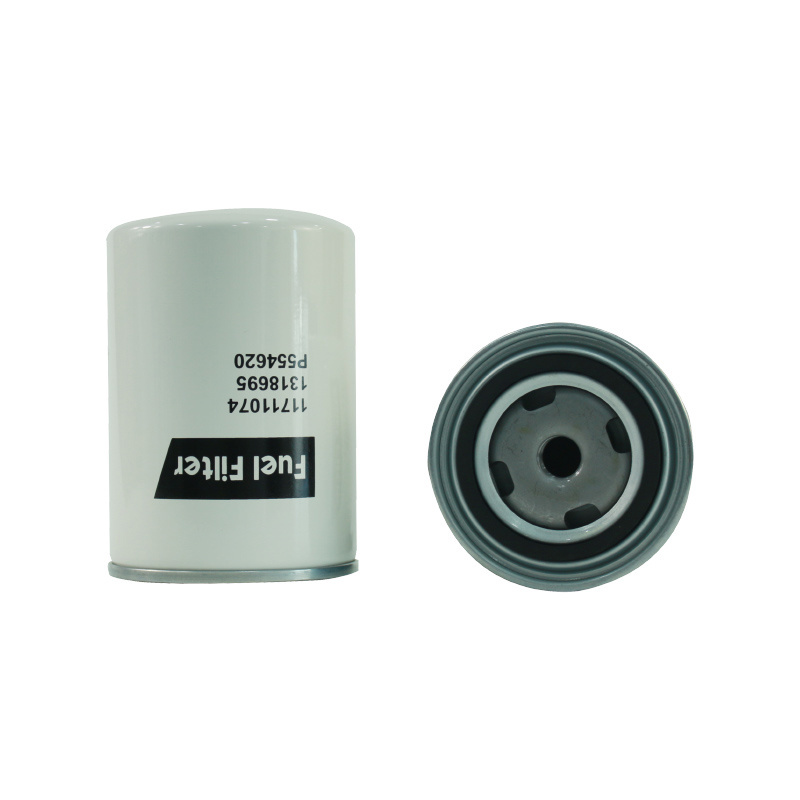Welcome to Hebei Takai Vehicle Parts Technology Co., Ltd.
5 Signs Your Tractor Oil Filter Needs Replacing: A Comprehensive Guide
Release Time:
Aug 08,2025
5 Signs Your Tractor Oil Filter Needs Replacing: A Comprehensive Guide Maintaining the operational efficiency of your tractor is crucial for any agricultural or industrial operation. One of the core components that ensures your tractor runs smoothly is the oil filter. The oil filter’s primary role is to remove contaminants from engine oil, allowing for optimal performance. However, a degraded or m
5 Signs Your Tractor Oil Filter Needs Replacing: A Comprehensive Guide
Maintaining the operational efficiency of your tractor is crucial for any agricultural or industrial operation. One of the core components that ensures your tractor runs smoothly is the oil filter. The oil filter’s primary role is to remove contaminants from engine oil, allowing for optimal performance. However, a degraded or malfunctioning oil filter can lead to numerous issues that can significantly impact your tractor's engine efficiency and longevity. In this article, we'll explore the five signs that indicate your tractor oil filter needs replacing.
Table of Contents
- 1. Common Signs of an Oil Filter in Distress
- 2. Declining Engine Performance
- 3. Decreased Oil Quality
- 4. Visible Oil Filter Leaks
- 5. Dashboard Warning Lights
- The Importance of Timely Oil Filter Replacement
- Preventive Maintenance for Your Tractor’s Oil Filter
- Conclusion
- FAQs
1. Common Signs of an Oil Filter in Distress
Recognizing the signs of a failing oil filter is essential for maintaining your tractor's health. Regular checks and being attuned to changes in your tractor's performance can prevent costly repairs down the line. Here are five key indicators that your oil filter is due for replacement:
1.1 Unusual Engine Noises
If you start noticing strange noises like knocking or ticking sounds coming from your tractor’s engine, it could be a sign that the oil filter is clogged. When the oil filter fails to adequately trap contaminants, these particles can circulate through the engine, resulting in wear and tear.
1.2 Poor Engine Performance
One of the most evident signs of a failing oil filter is a decline in engine performance. If your tractor struggles to start or experiences power loss during operation, it may be due to insufficient oil flow caused by a clogged filter.
1.3 Increased Exhaust Emissions
A poorly functioning oil filter can lead to incomplete combustion of engine oil, resulting in higher emissions. If you notice excessive smoke or unusual odors from the exhaust, it might be time to examine your oil filter.
2. Declining Engine Performance
Engine performance is directly linked to the efficiency of the oil filter. When the filter becomes clogged, it restricts oil flow to critical engine components. This can lead to overheating, increased friction, and ultimately, engine failure.
2.1 Symptoms of Poor Performance
Symptoms of declining engine performance due to a failing oil filter include:
- Reduced acceleration and power
- Inconsistent idling or stalling
- Difficulty in starting the engine
Addressing these issues promptly can save you from extensive repairs and extend your tractor's lifespan.
3. Decreased Oil Quality
Another clear sign that your tractor's oil filter needs replacing is a noticeable decline in oil quality. Over time, the oil filter can become saturated with dirt, debris, and sludge, making it ineffective.
3.1 How to Check Oil Quality
You can check the quality of your engine oil by performing a simple dipstick test:
- Remove the dipstick and wipe it clean.
- Reinsert it and then remove it again to check the oil's appearance.
If the oil appears dark, gritty, or has a burnt smell, it is an indication that the oil filter is not doing its job, and replacement is necessary.
4. Visible Oil Filter Leaks
Physical leaks are a clear sign that your oil filter may need replacing. If you find oil pooling underneath your tractor or notice wet spots on the filter itself, it is crucial to address these leaks immediately.
4.1 Types of Leaks to Look For
Keep an eye out for:
- Oil stains on the ground where you park your tractor
- Wet spots around the oil filter
- Oil spots on other engine components
Ignoring these signs can lead to serious engine damage, so prompt action is essential.
5. Dashboard Warning Lights
Modern tractors often come equipped with dashboard indicators that alert drivers to potential issues. If your dashboard displays an oil pressure warning light, this could signal a problem with the oil filter.
5.1 Responding to Warning Lights
If you see an oil pressure warning light, do not ignore it. Check the oil level and examine the filter. If the filter is old or clogged, replacing it is vital to prevent engine damage.
The Importance of Timely Oil Filter Replacement
Regularly replacing your oil filter is vital for maintaining the health of your tractor. A clean, functional oil filter helps ensure that the engine oil remains free of contaminants, allowing for smoother operation and better fuel efficiency.
6.1 Benefits of Timely Replacement
Some benefits of timely oil filter replacement include:
- Enhanced engine performance
- Increased fuel efficiency
- Extended engine life
Investing in regular maintenance, including timely oil filter replacement, can save you money in the long run.
Preventive Maintenance for Your Tractor’s Oil Filter
Proactive maintenance can significantly enhance the reliability of your tractor. Here are some preventive measures you can adopt:
7.1 Regular Inspection
Conduct regular inspections of your oil filter and engine oil. Look for any signs of wear and tear or contamination.
7.2 Change Oil and Filter Regularly
Establish a routine for changing your oil and filter based on your tractor's usage and manufacturer recommendations. Generally, it's advisable to change them every 100 to 200 hours of operation.
7.3 Use Quality Products
Opt for high-quality oil filters that are compatible with your tractor model. This helps ensure optimal performance and longevity.
7.4 Maintain Optimal Oil Levels
Always ensure that your tractor oil levels are adequate. Low oil levels can lead to insufficient lubrication, ultimately affecting the oil filter's performance.
Conclusion
The oil filter is a critical component in your tractor's engine system. Recognizing the signs of a failing oil filter is essential for maintaining your tractor's performance and longevity. By being vigilant and proactive, you can avoid the pitfalls of a clogged or damaged oil filter, ensuring your tractor operates efficiently for many years. Remember to routinely check for signs such as unusual noises, decreased oil quality, and visible leaks, and always stay informed about your tractor's maintenance needs.
FAQs
1. How often should I replace my tractor's oil filter?
It's generally recommended to replace the oil filter every 100 to 200 hours of operation, or as specified by the manufacturer.
2. Can I clean an oil filter instead of replacing it?
While some types of oil filters can be cleaned, it's usually more effective and safer to replace them to ensure optimal engine performance.
3. What happens if I ignore oil filter issues?
Ignoring oil filter issues can lead to decreased engine performance, increased wear and tear, and ultimately, engine failure.
4. Are there specific signs that indicate I need to replace my tractor's oil filter sooner?
Yes, signs like unusual engine noises, poor acceleration, or warning lights on the dashboard can indicate that you need to replace your oil filter sooner.
5. What type of oil filter should I use for my tractor?
Always refer to your tractor's owner manual for the specific type of oil filter recommended for your model, and opt for high-quality filters to ensure optimal performance.
You Can Also Learn More About Industry Trends











